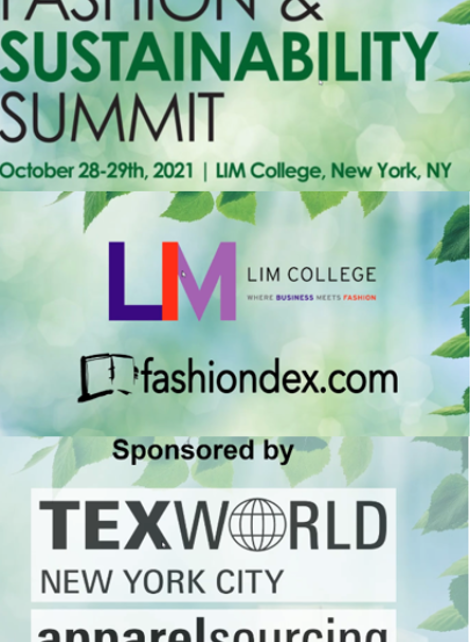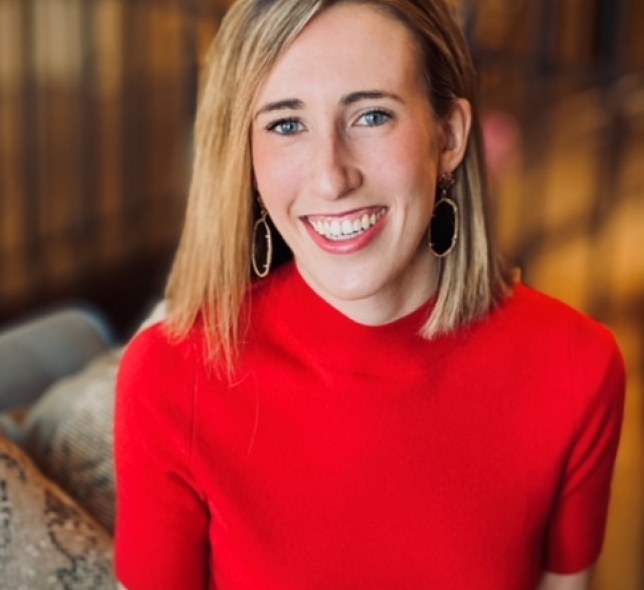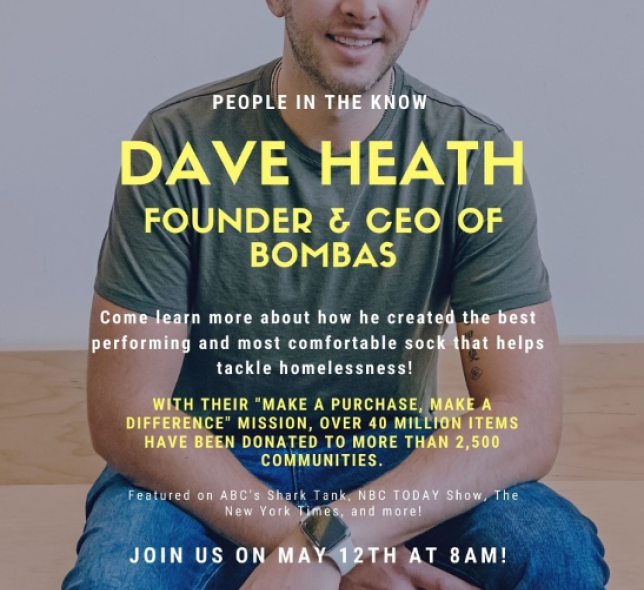Speakers addressed relevant sustainability topics in fashion, such as traceability, waste management, greenwashing, and more. The first day of the event kicked off with a workshop for all speakers who could attend in person. Participants discussed their companies’ efforts around sustainability and prepared for the all-day Q&A that would take place the next day.
Day two featured presentations and Q&As. There were over 250 participants, including many LIM students and faculty. Attendees got the inside scoop on the innovative ways fashion companies are making for a sustainable future.
Here are a few highlights:
Traceability at Saga Furs
Saga Furs is an auction house for fur that is sustainably sourced and values animal welfare. Charlie Ross, Head of International Marketing at Saga Furs spoke on how traceability is used at the company.
“The farms are the cornerstone in everything we do. Around 1988, the farming community in Europe wanted to go beyond legal recommendations for animal welfare. We now have legal certifiers and auditors go and verify to the welfare at our farms.”
During the Q&A, Ross mentioned Saga Furs will be launching sewn-in technology that will allow customers to tap their phones and receive information on where their fur came from. This technology has already been launched in New York, Montreal, Paris, and Beijing.
“We started in agriculture, we worked with brand partners, and now for the first time ever we have our message direct to consumer,“ Ross shared.
With use of this technology, Saga Furs is able to implement direct to consumer traceability and maintain transparency, key for leading the fashion industry into a more sustainable future.
Material Sustainability with Shinola, Tide Ocean, Material Exchange and Sourcing Journal
Shinola is a luxury watch retailer and Tide Ocean sources recyclable plastic materials procured from the ocean. Jessica Bins of Sourcing Journal helped moderate a conversation about using sustainable materials in luxury watch production.
Thomas Shori, founder of Tide Ocean, spoke about their initiative to collect and break down plastics from the ocean to be used as production materials for other companies, such as Shinola.
Said Shori, “It’s an incredible raw material, but unfortunately there is no design to get that plastic truly recycled. We have issues with landfills in developing countries and when there is runoff the plastic goes to the ocean.”
Shinola partnered with Tide Ocean to launch a sustainable watch collection, “Sea Creatures,” made from ocean-bound plastics.
Greg Verras, Design Director at Shinola said, “[As designers] we were just trying to do our part to complete that circle from material to consumer.”
Sustainability at Everlane and Supreme
Communication and collaboration among internal teams helps fashion brands maintain transparency and keep up sustainability efforts. Supreme and Everlane are two well-known lifestyle brands that incorporate sustainability into their missions.
While these two brands have very different target markets, Lisa Diegal, Director of Sustainability at Supreme, and Katina Boutis, Director of Sustainability at Everlane and an LIM faculty member, share similar values for taking action through supply chain management.
Boutis said, “I sit on the supply chain team, but I oversee our sustainability throughout the whole production chain. I also work within marketing and creative to make sure our message is being translated in a transparent manner.”
Reducing Waste with Fabscrap and Free People
Like Shinola and Tide Ocean, Free People and Fabscrap have a partnership to turn trash into treasure.
Fabscrap is a textile reuse and recycling resource. They collect fabric scraps and sell them to consumers and brands, such as Free People, for use in making clothing.
Jessica Schrieber, Fabscrap Founder and CEO, and Julie Verdugo, Director of Sustainability at Free People, and a member of LIM's Fashion Industry Advisory Board, discussed their partnership and the various ways they are making efforts toward circularity in the supply chain.
Schreiber mentioned how during the height of the pandemic, Fabscrap sold recycled fabrics directly to consumers online.
“We were finding ways to bring people together... It was great to see people pick up a new hobby, but do it sustainably.”
Schreiber also announced that Fabscrap will be opening up a new location in Philadelphia.
What I Learned
I learned so much at this event. I learned about product development, supply chain management, and marketing all at once. I also discovered new and innovative ways that companies are moving sustainability forward, such as Saga Furs with their new traceability technology and Everlane's new action plan. Hopefully everyone who attended came away with a sustainable piece of knowledge that they can go on and apply in business, fashion, and life.





